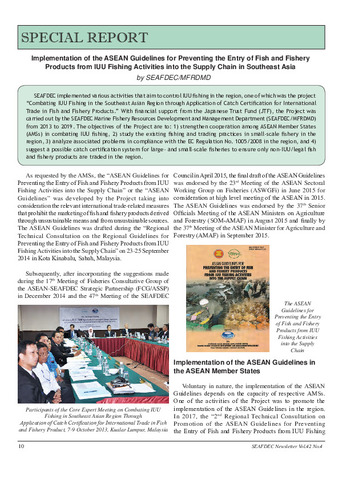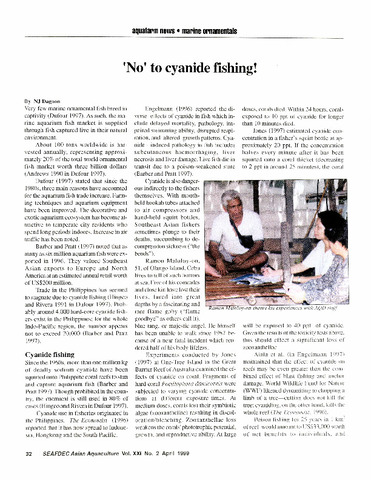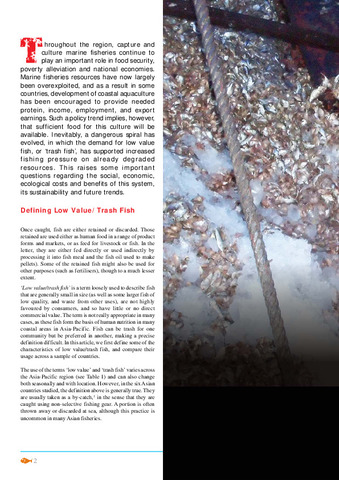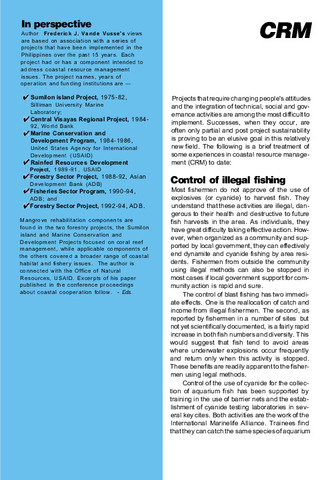Implementation of the ASEAN Guidelines for Preventing the Entry of Fish and Fishery Products from IUU Fishing Activities into the Supply Chain in Southeast Asia
Share
Abstract
SEAFDEC implemented various activities that aim to control IUU fishing in the region, one of which was the project “Combating IUU Fishing in the Southeast Asian Region through Application of Catch Certification for International Trade in Fish and Fishery Products.” With financial support from the Japanese Trust Fund (JTF), the Project was carried out by the SEAFDEC Marine Fishery Resources Development and Management Department (SEAFDEC/MFRDMD) from 2013 to 2019. The objectives of the Project are to: 1) strengthen cooperation among ASEAN Member States (AMSs) in combating IUU fishing, 2) study the existing fishing and trading practices in small-scale fishery in the region, 3) analyze associated problems in compliance with the EC Regulation No. 1005/2008 in the region, and 4) suggest a possible catch certification system for large- and small-scale fisheries to ensure only non-IUU/legal fish and fishery products are traded in the region.
Subject
Koleksi
Related items
Showing items related by title, author, creator and subject.
-
'No' to cyanide fishing!
Dagoon, N. J. (Aquaculture Department, Southeast Asian Fisheries Development Center, 1999) -
Prized commodity: Low value/trash fish from marine fisheries in the Asia-pacific region
Staples, Derek; Funge-Smith, Simon (Secretariat, Southeast Asian Fisheries Development Center, 2005)The use of the terms 'low value' and 'trash fish' varies across the Asia-Pacific region and can also change both seasonally and with location. This article defines low value/trash fish as 'Fish that have a low commercial ... -
CRM in the Philippines: Lessons learned
Southeast Asian Fisheries Development Center, Aquaculture Department (Aquaculture Department, Southeast Asian Fisheries Development Center, 1996)Philippine coastal communities can become capable fishery resource managers and that their management practices can become largely self-sustaining if the project approach focuses on assisting fishermen to learn how to help ...




